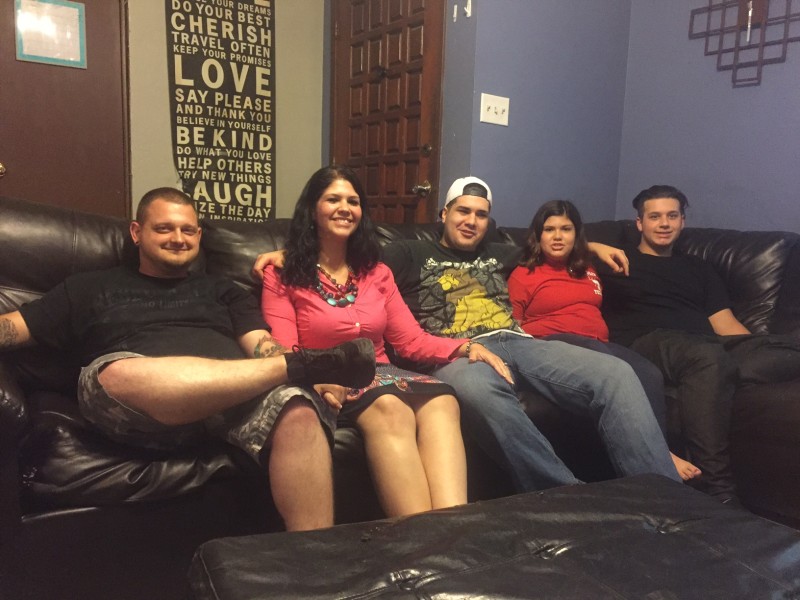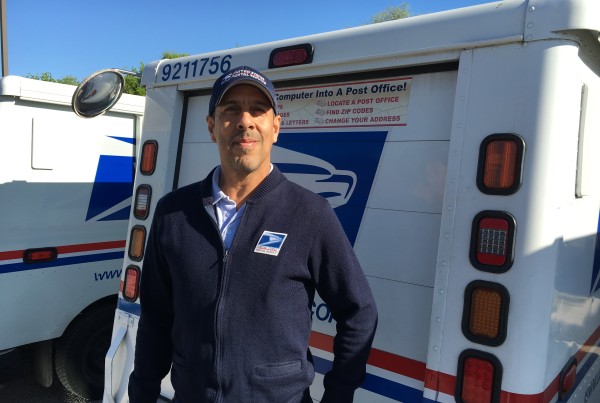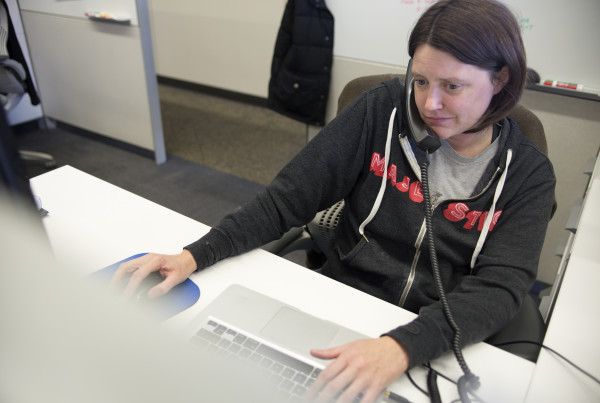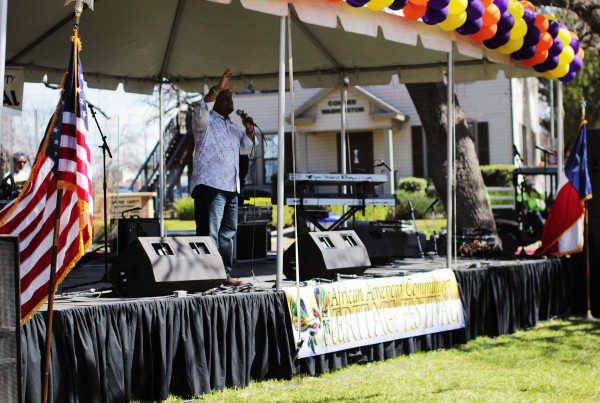From KERA Breakthroughs:
If you grow up in a stable home, with supportive parents, it can be hard to see all the paths that lead to homelessness. But they’re there — like trap doors in a dark house.
Latisha Blair fell into one when she was 16 years old.
Her mom was furious. She threatened to press statutory rape charges unless Blair’s boyfriend married her.
“So he married me,” Blair says.
She moved in with him and his grandparents.
“He didn’t want to be married to me,” she says. “He had his life and had a lot of girlfriends or whatnot. Within a month I was kicked out of the house and that’s how I first became homeless.”
She bounced around a lot with her baby, Christian. Soon, she had her second son, Chaz. And then she says Chaz’s father assaulted her and she went to a women’s shelter in Dallas.
Blair knew her sons needed health care. They were behind on vaccinations and hadn’t been eating regular meals, but she didn’t have anyone to give her rides.
It sounds like a minor roadblock, right?
Susan Spalding says it’s actually a major challenge. She’s medical director of Parkland’s Homeless Outreach Program.
“Their access to health care is much more difficult, so they have issues with transportation, with health insurance, with getting prescriptions, with competing priorities, so that health care is not nearly as important as getting food and shelter,” Spalding says.
Spalding’s goal is to make it as simple as possible for people like Blair to get their kids medicine and checkups: By bringing doctors, nurses and physician assistants to homeless and domestic violence shelters. Via a clinic. On wheels.
The Health Clinic On Wheels Is Born
In the 1990s, Parkland started using vans to deliver health care. Today, they look like a mix between an RV, a school bus, and a doctor’s office.
There’s only 40 feet to work with, but they’ve managed to squeeze in four separate rooms: the patient waiting area, the nurse’s office, an exam room, and a doctor’s office.
People hop on, check in, and get labs drawn just like a normal clinic.
Older versions of the vans were making their rounds across Dallas in the ’90s, and it was then that one stopped at the shelter Latisha Blair and her two kids were staying.
“I remember walking onto the van and sitting down on the very first seat,” Blair recalls. “Sitting there and having some conversation with the driver — talking back and forth just like you’re a normal person.”
Everything wasn’t normal. The doctor told Blair her son, Christian, was underweight for his age. He was 4 at the time. It was hard news for Blair to hear.
“Anybody can tell you that I love my kids more than anything in this world and I know I’ve been the best mom I can be with my family background,” she says. “I think that it really hurt me that I couldn’t give them what I wanted to and that made me feel less inside.”
Each time Blair took her kids on the bus — over a period of years — the doctors welcomed her. She never felt judged, like a bad person or parent.
And that’s key. Caterina Hill is a research associate at Harvard Medical School. She says when you’re homeless, you’re often marginalized, and you don’t seek out the medical care you need. Mobile clinics parked in the community help counter that.
“They’re an intimate, less formal space, which makes it welcoming,” Hill says. “This helps patients and physicians form a trusting connection which is the first step to deliver excellent health care.”
Care that kept Latisha Blair’s kids healthy.
Even though they were in and out of shelters, they had access to doctors and nurses, to people who cared about them.
















